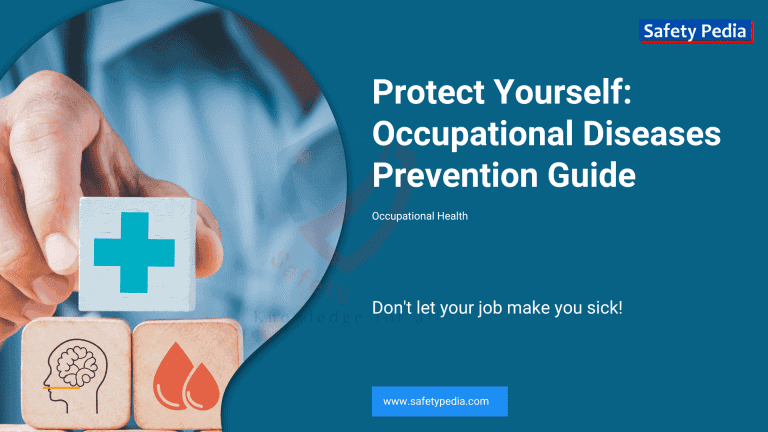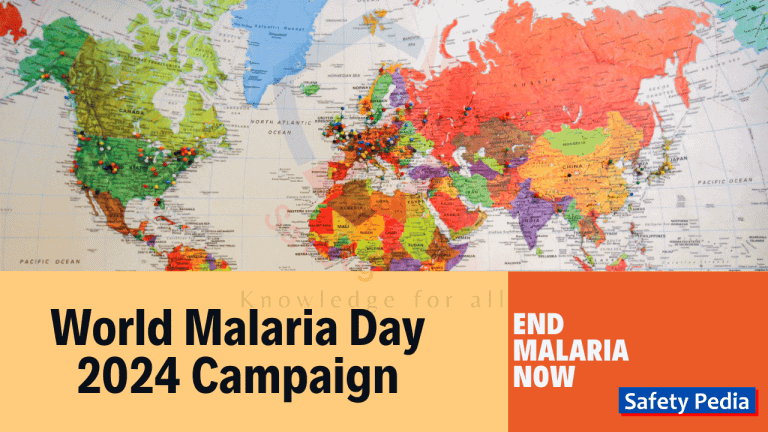
Introduction
Welcome to World Heart Day, a global campaign dedicated to raising awareness about cardiovascular health and promoting healthy living. In this guide, we’ll show you how to protect your heart and take control of your well-being. Your heart is an incredible organ that deserves our utmost care and attention. That’s why World Heart Day serves as a vital reminder of the importance of maintaining a healthy heart. By adopting simple lifestyle changes, we can significantly reduce the risk of cardiovascular diseases and live longer, happier lives.
In this article, we’ll explore a range of topics, from healthy eating habits to the benefits of regular exercise. We’ll debunk myths, provide valuable tips, and showcase the latest advancements in heart health research. Whether you are elderly, young, or fall somewhere in between, the advice provided in this guide is tailored to meet your unique needs. Whether you’re looking to prevent heart disease or seeking guidance on managing existing conditions, this guide has you covered. Join us on this journey towards a healthier heart. Together, we can make a real difference and inspire others to prioritize their cardiovascular health. Let’s protect our hearts and embrace a life of vitality and well-being.
Are you ready to take control of your heart health? World Heart Day is the perfect opportunity to start prioritizing your cardiovascular well-being. Maintaining a healthy heart is essential for a long and fulfilling life. With alarming statistics of heart disease and cardiovascular-related deaths worldwide, it is crucial to educate ourselves on preventive measures and lifestyle choices that can protect our hearts.
We will explore the significance of maintaining a healthy weight and avoiding harmful habits such as smoking. By adopting these practices, you can significantly reduce the risk of heart disease and increase your overall well-being. Join us on this journey towards a healthier heart as we celebrate World Heart Day and prioritize our cardiovascular health. Get ready to transform your lifestyle and protect your heart for a better tomorrow.
What is World Heart Day?
World Heart Day, observed annually on September 29, is a powerful international campaign aimed at spreading awareness about cardiovascular health. Established by the World Heart Federation in partnership with the World Health Organization, World Heart Day serves as a platform to inform people about cardiovascular diseases (CVDs), which are the leading cause of death globally.

The importance of World Heart Day
The importance of World Heart Day cannot be overstated. CVD is a major public health problem, affecting millions of people worldwide. The World Heart Federation emphasizes that at least 80% of premature deaths from heart disease and stroke could be avoided if the main risk factors—tobacco use, unhealthy diet, and physical inactivity—are controlled. By raising awareness about this disease, World Heart Day can help people to:
- Learn about the risk factors for CVD. These include high blood pressure, high cholesterol, smoking, unhealthy diet, physical inactivity, and stress.
- Take steps to reduce their risk of CVD. This can involve making lifestyle changes, such as eating a healthy diet, exercising regularly, and quitting smoking.
- Seek early diagnosis and treatment for CVD. Early diagnosis and treatment can help to prevent heart attacks and strokes.
World Heart Day is an opportunity for everyone to play a role in promoting heart health. By learning about CVD and taking steps to prevent it, we can help to save lives.
The importance of cardiovascular health
Cardiovascular health is a fundamental aspect of our overall well-being, as the heart is the central organ responsible for pumping blood and delivering oxygen throughout the body. A healthy cardiovascular system ensures that our vital organs function efficiently, and our body’s cells receive the necessary nutrients and resources to thrive.
When our heart is in good condition, it can effectively regulate blood pressure, maintain a steady rhythm, and respond to the body’s changing demands. Conversely, when our cardiovascular health is compromised, it can lead to a range of debilitating conditions, such as heart attacks, strokes, and other life-threatening complications.
Prioritizing cardiovascular health is crucial, as it not only enhances our physical well-being but also has a profound impact on our mental and emotional state. A healthy heart can improve our energy levels, reduce the risk of chronic illnesses, and ultimately, enhance our quality of life. By understanding the significance of cardiovascular health and taking proactive steps to maintain it, we can empower ourselves to live longer, healthier, and more fulfilling lives.
Common heart diseases and risk factors
Heart disease is a broad term that encompasses a range of conditions affecting the heart and the cardiovascular system. Some of the most common heart diseases include coronary artery disease, heart failure, arrhythmias, and valvular heart disease.
Coronary artery disease, for instance, is characterized by the buildup of plaque in the arteries that supply blood to the heart. This can lead to reduced blood flow and, in severe cases, a heart attack. Heart failure, on the other hand, occurs when the heart is unable to pump blood effectively, resulting in a range of symptoms such as fatigue, shortness of breath, and fluid buildup.
Certain risk factors can increase an individual’s likelihood of developing heart disease. These include age, family history, high blood pressure, high cholesterol, diabetes, obesity, physical inactivity, smoking, and excessive alcohol consumption. Understanding these risk factors is crucial, as it allows individuals to take proactive steps to mitigate their chances of developing heart-related complications.
World Heart Day campaigns and initiatives
Throughout the years, World Heart Day campaigns have focused on various themes, such as “Share the Power,” “My Heart, Your Heart,” and “Use Heart to Beat Cardiovascular Disease.” These campaigns have employed a range of strategies, including educational workshops, public awareness campaigns, and community-based events, to encourage individuals to adopt healthier lifestyles and take charge of their heart health.
Alongside global initiatives, many countries and regions have also launched their own Heart Day programs, tailored to address the specific needs and challenges of their local populations. These efforts have been instrumental in promoting heart health awareness, encouraging collaborations between healthcare providers and the community, and inspiring individuals to make positive changes in their lives.
- Provide resources for people to create and share personalized campaign posters and social media posts to spread awareness.
- Implement large-scale public screenings and educational programs to inform the public about cardiovascular health and preventive measures.
- Encourage individuals and organizations to sign a global petition demanding governments to prioritize heart health and create comprehensive cardiovascular plans.
- Organize a call for landmarks around the world to light up in red on September 29 to raise awareness of cardiovascular disease.
- Organize a challenge where participants create a heart-shaped route to walk, bike, or run, and share it to contribute to a collective goal.
- Host community-based physical activity events to promote a heart-healthy lifestyle and engage local communities in World Heart Day activities.
- Highlight policy changes and public health initiatives inspired by World Heart Day that have led to improvements in heart health and reduced rates of cardiovascular disease.
- Share patient testimonials and stories to personalize the impact of cardiovascular diseases and the importance of heart health initiatives.
- Offer a suite of ‘Use Heart’ assets for companies, schools, organizations, and clubs to make World Heart Day their own.
- Address the significant financial impact of cardiovascular disease and the importance of allocating resources effectively to combat it.
- Collaborate with sports figures and celebrities to endorse the campaign and reach a wider audience with the message of heart health.
- Utilize hashtags and social media challenges to engage a global audience in World Heart Day activities and spread the message virally.
- Encourage the adoption of heart-healthy habits through campaigns focused on diet, exercise, and smoking cessation, tailored to various demographics and cultural contexts.
- Highlight the latest research and innovations in cardiovascular health during World Heart Day events to inspire and educate attendees.
These initiatives can help raise awareness about cardiovascular diseases and promote heart health on a global scale. Engaging the public, policymakers, healthcare professionals, and various organizations in these campaigns can lead to a more informed and proactive approach to heart health.
Understanding cholesterol and its impact on heart health
Cholesterol is a waxy, fat-like substance found in all human cells. It plays a vital role in various bodily functions, including building cell membranes and producing hormones. However, when cholesterol levels rise too high, it can contribute to heart disease.
Types of Cholesterol
There are two main types of cholesterol:
- Low-density lipoprotein (LDL): Often referred to as “bad cholesterol,” high levels of LDL can build up in your arteries and form plaque, which can lead to heart attack or stroke.
- High-density lipoprotein (HDL): Known as “good cholesterol,” HDL helps remove LDL from your arteries, reducing the risk of heart disease.
Factors Affecting Cholesterol Levels
Several factors can influence your cholesterol levels, including:
- Diet: Consuming foods high in saturated and trans fats can raise LDL cholesterol levels.
- Genetics: Some people may have a genetic predisposition to high cholesterol.
- Lifestyle: Factors like smoking, obesity, and physical inactivity can also contribute to elevated cholesterol.
- Age and gender: As you age, your cholesterol levels tend to rise. Men generally have higher LDL cholesterol levels than women before menopause.
Managing Cholesterol
To manage your cholesterol levels and reduce your risk of heart disease, you can:
- Eat a healthy diet: Focus on fruits, vegetables, whole grains, lean proteins, and healthy fats.
- Exercise regularly: Aim for at least 30 minutes of moderate-intensity exercise most days of the week.
- Maintain a healthy weight: Losing weight can help improve your cholesterol levels.
- Quit smoking: Smoking damages your arteries and can contribute to plaque buildup.
- Manage stress: Chronic stress can negatively impact your heart health.
- Talk to your doctor: Regular check-ups and cholesterol screenings can help you monitor your levels and make necessary adjustments.
The Role of Sleep in Maintaining Heart Health
Getting enough quality sleep is essential for overall health, including heart health. Sleep deprivation can have several negative effects on your cardiovascular system, including:
- Increased blood pressure: Lack of sleep can lead to elevated blood pressure, a major risk factor for heart disease.
- Increased risk of heart attack and stroke: Studies have linked poor sleep quality to a higher risk of cardiovascular events.
- Impaired blood sugar control: Sleep deprivation can interfere with your body’s ability to regulate blood sugar, which is important for heart health.
- Increased inflammation: Chronic inflammation is associated with heart disease, and lack of sleep can contribute to this.
To ensure you’re getting enough quality sleep:
- Establish a regular sleep schedule: Try to go to bed and wake up at the same time each day.
- Create a relaxing bedtime routine: Wind down before bed with activities like reading or taking a warm bath.
- Optimize your sleep environment: Make sure your bedroom is dark, quiet, and cool.
- Limit caffeine and alcohol intake: These substances can interfere with sleep.
- Address underlying health conditions: If you’re having trouble sleeping, consult with a healthcare provider to rule out any underlying medical issues.
By understanding the importance of cholesterol management and the role of sleep in heart health, you can take proactive steps to protect your cardiovascular health and reduce your risk of heart disease.
The Impact of Smoking
Smoking is one of the most harmful habits affecting heart health. It damages the heart and blood vessels, increases blood pressure, thickens the blood reduces the amount of oxygen reaching the heart, raises blood pressure, and accelerates the development of atherosclerosis. It also reduces HDL (“good”) cholesterol and increases LDL (“bad”) cholesterol. The chemicals inhaled while smoking can lead to the formation of blood clots or plaque in the blood vessels, significantly increasing the risk of coronary heart disease. Quitting smoking, therefore, is a crucial step towards protecting one’s heart.
Maintaining a Healthy Weight
A critical aspect of reducing the risk of CVDs is maintaining a healthy weight. Excess weight can increase the risk of heart disease, stroke, and other cardiovascular problems. It can also contribute to high blood pressure, high cholesterol, and diabetes, all of which are major risk factors for heart disease. The American Heart Association highlights that an ideal body weight contributes to the efficient circulation of blood, better fluid level management, and a lower likelihood of developing diabetes, heart disease, certain cancers, gallstones, osteoarthritis, breathing problems, and sleep apnea. It is evident that managing weight is not just about aesthetics; it is about improving the quality of life and longevity.
Tips for maintaining a healthy heart
Maintaining a healthy heart requires a multifaceted approach that encompasses various aspects of our lifestyle. Here are some essential tips to help you protect your cardiovascular well-being:
- Adopt a heart-healthy diet and incorporate a balanced diet rich in fruits, vegetables, whole grains, lean proteins, and healthy fats. Limit your intake of saturated and trans fats, sodium, and added sugars, as these can contribute to the development of heart disease.
- Engage in regular physical activity and aim for at least 150 minutes of moderate-intensity exercise or 75 minutes of vigorous-intensity exercise per week. This can include activities such as brisk walking, swimming, cycling, or strength training.
- Manage stress effectively, chronic stress can take a toll on your heart health. Practice stress-reducing techniques, such as meditation, yoga, deep breathing exercises, or engaging in hobbies you enjoy.
- Maintain a healthy weight, excessive weight, particularly around the abdomen, can increase your risk of heart disease. Adopt a balanced diet and regular exercise routine to achieve and maintain a healthy body weight.
- Quit smoking and limit alcohol consumption. Smoking and excessive alcohol use can significantly increase your risk of heart disease. If you smoke, consider seeking support to quit, and limit your alcohol intake to recommended levels.
- Monitor your blood pressure and cholesterol levels. Regular check-ups with your healthcare provider can help you identify and manage any issues with your blood pressure or cholesterol levels, which are crucial for maintaining a healthy heart.
- Get enough quality sleep, adequate sleep is essential for cardiovascular health. Aim for 7-9 hours of sleep per night and establish a consistent sleep routine.
By incorporating these tips into your daily life, you can take proactive steps to protect your heart and reduce your risk of developing heart-related complications.
The role of diet and nutrition in heart health
A heart-healthy diet is a crucial component of maintaining cardiovascular well-being. The foods we consume can have a direct impact on our heart’s function, blood pressure, and overall risk of heart disease.
One of the key dietary recommendations for a healthy heart is to focus on a plant-based, whole-food approach. This means emphasizing the consumption of fruits, vegetables, whole grains, legumes, nuts, and seeds, which are rich in essential nutrients, fiber, and antioxidants. These nutrient-dense foods can help lower cholesterol levels, reduce inflammation, and support the overall health of the cardiovascular system.
In contrast, it’s essential to limit the intake of saturated and trans fats, which can contribute to the buildup of plaque in the arteries and increase the risk of heart disease. Sources of these unhealthy fats include fried foods, processed snacks, and fatty cuts of meat. Additionally, reducing the consumption of added sugars and sodium can also have a positive impact on heart health.
Specific dietary patterns, such as the Mediterranean diet and the DASH (Dietary Approaches to Stop Hypertension) diet, have been shown to be particularly beneficial for cardiovascular health. These diets emphasize the consumption of heart-healthy foods, while also promoting the inclusion of lean proteins, healthy fats, and limited amounts of processed or high-sodium items.
By adopting a heart-healthy diet and making informed choices about the foods we consume, we can take an active role in supporting our cardiovascular well-being and reducing the risk of heart-related complications.
Exercise and physical activity for a healthy heart
Regular physical activity is a cornerstone of maintaining a healthy heart. Exercise not only strengthens the heart muscle but also improves overall cardiovascular function, helps manage risk factors for heart disease, and can even reverse the effects of certain heart-related conditions.
Engaging in a variety of aerobic exercises, such as brisk walking, jogging, swimming, or cycling, can have a profound impact on heart health. These activities increase the heart’s ability to pump blood more efficiently, lower blood pressure, and improve the body’s utilization of oxygen. Incorporating strength training exercises, such as resistance training or bodyweight exercises, can also contribute to cardiovascular health by increasing muscle mass and enhancing metabolic function.
The American Heart Association recommends at least 150 minutes of moderate-intensity exercise or 75 minutes of vigorous-intensity exercise per week for adults. However, it’s important to note that the specific exercise recommendations may vary based on individual factors, such as age, overall health, and any pre-existing medical conditions.
For those who are just starting to incorporate physical activity into their lifestyle, it’s essential to begin gradually and gradually increase the duration and intensity of their workouts. This approach can help prevent injury and ensure that the exercise routine is sustainable in the long term.
By making exercise a consistent part of their daily routine, individuals can take a proactive step towards maintaining a healthy heart and reducing their risk of heart-related complications.
Stress management and its impact on heart health
Stress is a ubiquitous part of modern life, and its impact on our cardiovascular health cannot be overstated. Chronic stress can have a detrimental effect on the heart, leading to a range of negative consequences, including elevated blood pressure, increased inflammation, and a higher risk of developing heart disease.
When we experience stress, our body’s natural response is to release hormones like cortisol and adrenaline, which can cause the heart to work harder and the blood vessels to constrict. Over time, this sustained stress response can take a toll on the cardiovascular system, contributing to the development of conditions such as high blood pressure, heart attacks, and strokes.
Effective stress management strategies, therefore, play a crucial role in maintaining a healthy heart. Techniques such as mindfulness meditation, deep breathing exercises, and regular physical activity can help alleviate the negative effects of stress and promote overall cardiovascular well-being. Engaging in hobbies, spending time in nature, and practicing relaxation methods can also be beneficial in managing stress levels.
It’s important to note that the impact of stress on heart health can be particularly significant for individuals with pre-existing heart conditions or other risk factors. In such cases, it’s essential to work closely with healthcare providers to develop a comprehensive stress management plan that addresses the unique needs and challenges of the individual.
By prioritizing stress management and incorporating proven techniques into our daily lives, we can take an active step towards safeguarding our cardiovascular health and reducing the risk of heart-related complications.
The importance of regular check-ups and screenings
Regular check-ups and screenings are essential for maintaining a healthy heart and catching any potential issues early on. These preventive measures not only help identify risk factors but also allow healthcare providers to develop personalized strategies for managing and improving cardiovascular health.
One of the most important aspects of regular check-ups is the monitoring of key health indicators, such as blood pressure, cholesterol levels, and blood sugar levels. These metrics can provide valuable insights into an individual’s overall cardiovascular health and help identify any potential areas of concern. Additionally, screenings for conditions like coronary artery disease, heart failure, and arrhythmias can help detect problems before they become more severe.
Regular check-ups also provide an opportunity for healthcare professionals to assess an individual’s lifestyle factors, such as diet, exercise habits, and stress management techniques. By understanding an individual’s unique circumstances, healthcare providers can offer personalized recommendations and guidance to help improve their cardiovascular well-being.
It’s recommended that adults undergo regular check-ups and screenings, typically on an annual basis or as advised by their healthcare provider. This is especially crucial for individuals with a family history of heart disease or those who have existing risk factors, as they may require more frequent monitoring and targeted interventions.
By prioritizing regular check-ups and screenings, individuals can take a proactive approach to their heart health, empowering themselves to make informed decisions and take the necessary steps to prevent or manage heart-related complications.
Conclusion: Taking action for a healthier heart
In the face of the ongoing health challenges we collectively face, maintaining a healthy heart has never been more important. As we commemorate World Heart Day, this comprehensive guide has provided you with the knowledge and tools needed to safeguard your cardiovascular well-being and embrace a healthier lifestyle.
From adopting a heart-healthy diet and engaging in regular physical activity to managing stress effectively and undergoing regular check-ups, we have explored a multifaceted approach to protecting your heart. By incorporating these strategies into your daily life, you can take proactive steps towards reducing your risk of heart disease and improving your overall quality of life.
Remember, the journey to a healthier heart is not a one-size-fits-all solution. It requires a personalized approach that takes into account your unique needs, circumstances, and health goals. Seek guidance from healthcare professionals, stay informed about the latest advancements in cardiovascular care, and be persistent in your efforts to prioritize your heart health.
On World Heart Day, let’s commit to taking action to protect our hearts:
- Adopt a healthy lifestyle: Eat a balanced diet, exercise regularly, and get enough sleep.
- Manage stress: Find healthy ways to cope with stress, such as meditation or yoga.
- Quit smoking: If you smoke, consider quitting. There are many resources available to help you.
- Get regular check-ups: See your doctor for regular check-ups and screenings for heart disease.
Together, let us welcome the spirit of World Heart Day and make a commitment to protecting our hearts, and promoting a healthier future for ourselves and our loved ones. By taking action today, we can empower ourselves to live longer, more fulfilling lives, and inspire others to do the same.
References:
https://world-heart-federation.org/world-heart-day/petition/
https://www.britannica.com/topic/World-Heart-Day
https://www.who.int/southeastasia/news/detail/28-09-2023-world-heart-day-2023
Join Our Safety Community!
Stay informed with the latest tips and insights on occupational health, safety, and the environment.






